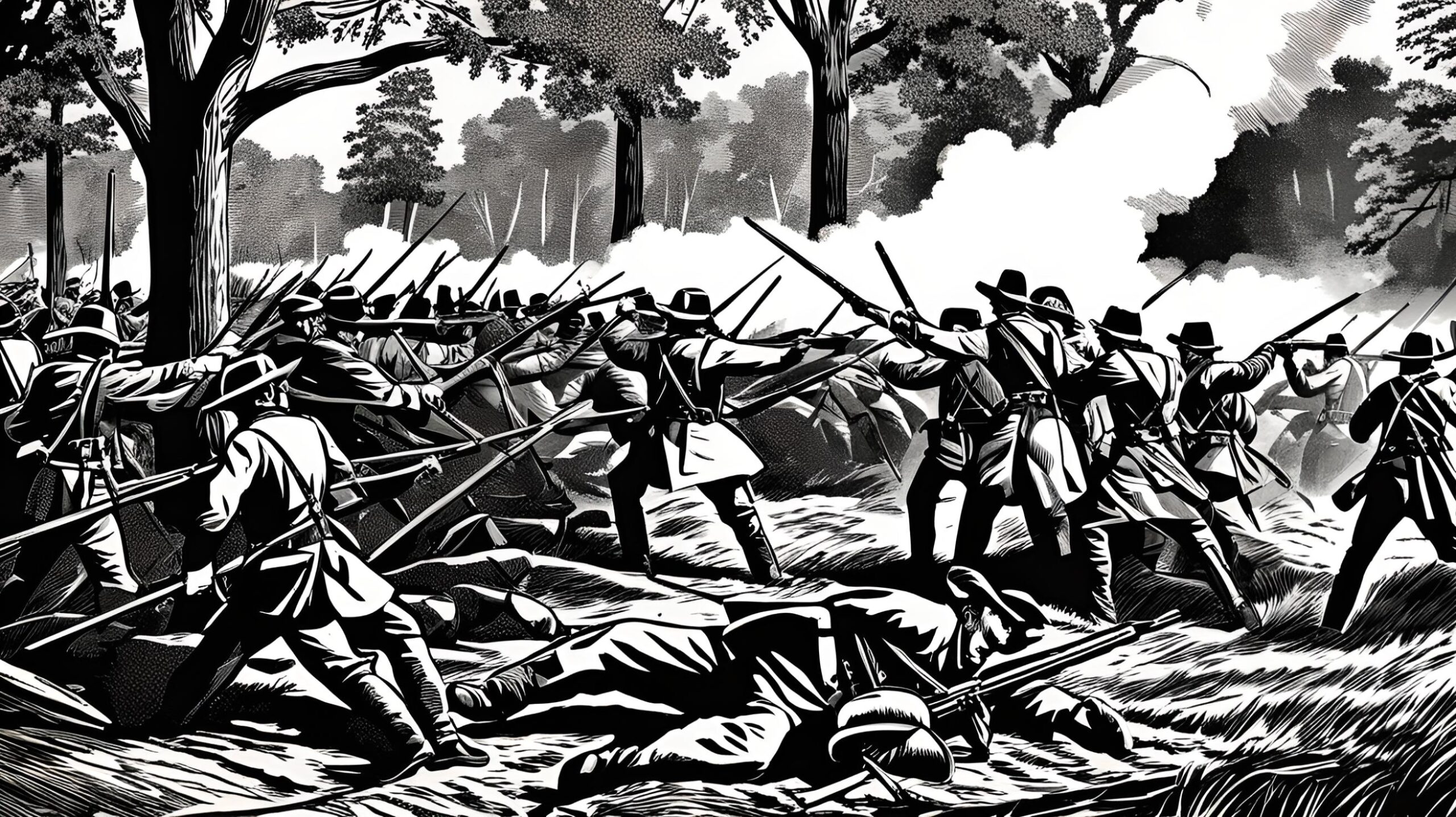Flashback to September 1
American History

On July 24, 1877, a significant event took place in American history – the first time federal troops were deployed to combat striking workers. This event marks a pivotal moment in labor relations and has had a lasting impact on the relationship between workers and the government. In this article, we will explore the background of the event, its consequences, and its significance in shaping labor rights in the United States.
The late 19th century was a period marked by rapid industrialization and the emergence of large corporations. As industries grew and consolidated, workers found themselves facing harsh working conditions, low wages, and long hours. Dissatisfaction among workers fueled the growth of labor unions and strikes as a means to demand better rights and fair treatment.
The event of federal troops being used to combat strikers on July 24, 1877, occurred during the Great Railroad Strike. The strike began in the city of Martinsburg, West Virginia, when railroad workers walked off their jobs in protest against a 10% wage cut. The strike quickly spread to other cities and states, paralyzing rail transportation across the country.
The response of the railroad companies and the government reflected a deep-rooted fear of the growing labor movement. Several states called upon their state militias to suppress the strikes, using force to disperse picket lines and protect the transportation of goods. However, as the strike spread, state militias proved to be insufficient to handle the scale of the unrest.
On July 24, 1877, President Rutherford B. Hayes ordered federal troops to intervene in the Great Railroad Strike. The deployment of federal troops marked an escalation in the government’s response to labor unrest. The troops were used not only to protect railroad property but also to forcibly break up striking workers and ensure the resumption of rail operations.
The use of federal troops to suppress the strike had significant consequences. The clashes between troops and strikers resulted in numerous casualties and heightened tensions between workers and the government. The perceived use of excessive force by federal troops fueled public outrage and led to widespread condemnation.
In the aftermath of the event, labor unions and workers’ rights advocates intensified their efforts to secure better working conditions and protections. The Great Railroad Strike of 1877 became a rallying cry for the labor movement, galvanizing support and raising awareness about the plight of workers.
The event also prompted a broader discussion on the role of the government in labor disputes. The use of federal troops to suppress strikes sparked debates over the limits of state power, workers’ rights, and the role of the federal government in regulating labor relations. These discussions ultimately contributed to the development of labor laws and regulations, aimed at striking a balance between the interests of workers and the needs of industries.
Today, the event of the first time federal troops were used to combat strikers stands as a reminder of the struggles faced by workers in their fight for fair treatment and better working conditions. It serves as a crucial moment in the history of labor rights in the United States, highlighting the ongoing need for the protection and preservation of workers’ rights.
the event that occurred on July 24, 1877, when federal troops were deployed to combat striking workers, marked a turning point in labor relations. The use of force to suppress the strikes had significant consequences, fueling the labor movement and provoking discussions on workers’ rights and the role of the government. This event serves as a reminder of the ongoing struggle for workers’ rights and the importance of fair and equitable treatment in the workplace.
We strive for accuracy. If you see something that doesn't look right, click here to contact us!
Sponsored Content

The Civil War: Severe…
Experience the intensity of…

Henry “Scoop” Jackson, American…
Renowned American Senator-Democrat for…

Leonor Sullivan, American politician…
"Remembering Leonor Sullivan: prominent…

Great Hinckley Fire: A…
"Experience the chilling history…

In the USA, the…
On September 1, 1982,…

California Constitutional Convention held…
On September 1, 1849,…

